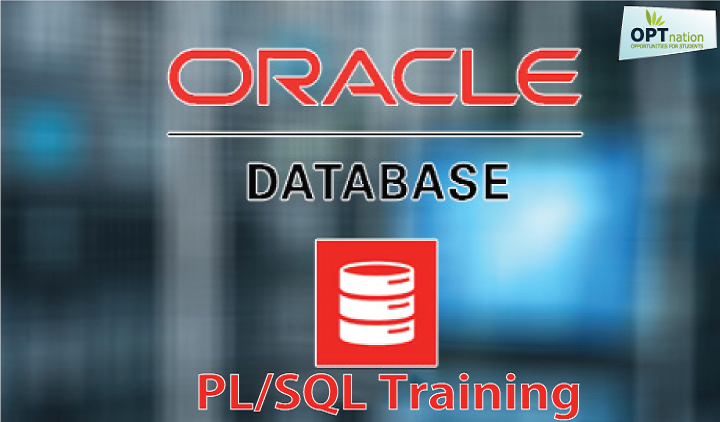SQL is a structured query language. Databases access information through SQL. PL SQL is the procedural language extension to SQL; it is a programming language just like C++, JAVA, Pascal, etc. It is a server-side and easy to use language. The basic units that make up PL/SQL program can be nested inside one another; the units include functions, procedures, and anonymous blocks.
It is an imperative 3GL that was designed for seamless programming of SQL commands.
❯ DBMS concepts
- Define database
- Define database system
- What is DBMS
- What is RDBMS
- What is ORDBMS
- Difference between DBMS, RDBMS, and ORDBMS
❯ SQL
- Define SQL
- DDL commands
- DML command
- Insert
- SQL SELECT statements
- Operators
- Distinct clause
- Order by clause
- Comparison conditions
- Constraints
- Primary key constraint
- Check constraint
- Unique constraint
- Cascade constraint
- Foreign key constraint
- Not null constraint
- Cascade constraint
- Joins
- Define join
- Cartesian join
- Equi and non-equi join
- Outer joins
- Functions
- General functions
- Numeric functions
- Date functions
- Conversion functions
- Character functions
- Aggregation of data via group functions
- Sub-queries
- Simple
- Multiple row
- Delete
- Data deletion
- Deletion using join
- Deletion using sub-queries
- Update
- Updating data
- Updating using sub-queries
- Database objects
- Synonym
- Index
- View
- Privilege
- Sequence
- Privileges
- Revoke
- Grant
- View
- Simple
- In line
- Complex
- Synonym
- Private
- Public
❯ PL/SQL
❯ Introduction
- Overview
- Sub-programs
- Benefits of sub-programs
- Types o PL/SQL blocks
- Simple anonymous block
- Generating output
❯ Block structure of PL/SQL
Identifiers
- Types of identifiers
- Using declarative section to define identifiers
- %TYPE attribute
- Scalar data types identification
- Bind variables definition
- Sequences in PL/SQL expressions
❯ Executable statements
- Basic guidelines of PL/SQL block syntax
- Nested blocks
- Conversion of data types
- Comment code
- Operators identification
❯ Iterative statements
- Simple loop
- For loop
- While loop
❯ Interaction with Oracle server
- Invoking SELECT statements in PL/SQL to retrieve data
- SQL cursor concept
- Save transactions
- Discard transactions
- SQL cursor attributes
❯ Composite data types
- Using records of PL/SQL
- Insert and update with PL/SQL records
- %ROWTPE attribute
- Examining INDEX BY table of records
- Associative arrays
❯ Control structures
- Conditional processing
- Using IF statements
- Using CASE statements
- Simple loop statement
- WHILE loop statement
- FOR loop statement
- Description of continue statement
❯ Cursor management
- Define cursor
- Implicit cursor
- Explicit cursor
- Cursor with FOR loop
- Cursor with parameters
❯ Exception
- Define an exception
- Types of exception
- Predefined exception
- User-defines exception
❯ Exception handling
- What are exceptions
- Handling exceptions with PL/SQL
- Propagating exceptions
- RAISE_APPLICATION_ERROR procedure
- Trapping errors
- User-defined errors
- Predefined Oracle server errors
- Non-predefined server errors
❯ Stored procedures and functions
- Introduction
- Subprograms and anonymous blocks
- Simple procedure
- Creation
- Execution
- Simple function execution
❯ Create packages
- What is a package
- Benefits
- Components
- Developing of a package
- Invoking package constructs
- Enabling visibility of package’s components
- Viewing PL/SQL source code
❯ Dynamic SQL
- Introduction
- Execution flow
- Cursor variables declaration
- PL/SQL’s dynamic execution
- Invoking DBMS_SQL package
- Dynamic SQL function completeness
❯ Design tips and techniques
- NOCOPY hint theory
- Format of standard packages in an application
❯ Describe triggers
- Trigger event types identification
- Trigger event body identification
- Identification of timing of
- Trigger event types
- Trigger event body
- Trigger event firing
- Business application scenarios
- Statement-level triggers vs. row-level triggers
- Managing triggers
- Removing triggers
- Testing triggers
Oracle PL/SQL Online Training Placement in Various Cities:
- Oracle PL/SQL Online Training and Placement in Chicago
- Oracle PL/SQL Online Training and Placement in Boston
- Oracle PL/SQL Online Training and Placement in Phoenix
- Oracle PL/SQL Online Training and Placement in New York
- Oracle PL/SQL Online Training and Placement in Houston
- Oracle PL/SQL Online Training and Placement in Virginia
- Oracle PL/SQL Online Training and Placement in Atlanta

